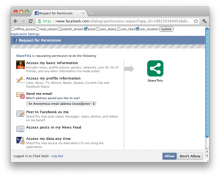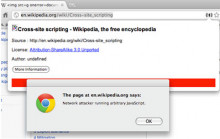Opt-out of Facebook permissions via new add-on
Still in rough development, a new extension for Google Chrome puts in your hands a useful power tool for separating your data from Facebook apps of dubious origin. Called OOptOut (download), the add-on by Chad Selph helpfully lists above the Facebook header for you any permissions that a newly-installed Facebook app requests.













































































